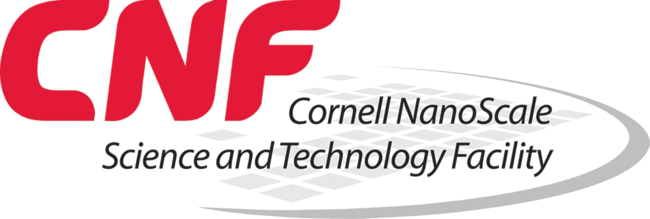For external advice about strategic planning, the CNF has assembled an External Advisory Board (EAB), consisting of leaders with broad experience in industry, academia, and government. The EAB is tasked with providing guidance to CNF regarding its place within the national nanotechnology community and within NNCI and to suggest strategies to make CNF most effective in its mission. This committee will meet annually or when CNF seeks advice about specific issues.
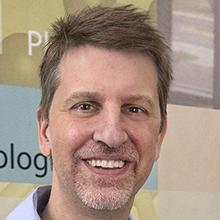
Black joined Brookhaven Lab in 2006 as a scientist and became leader of the Electronic Nanomaterials Group the following year. Using his expertise in block copolymers, or linked polymer chains, he has developed nanostructures for a broad range of applications, including photovoltaic devices, superhydrophobic surfaces, and chemical sensors.
Prior to coming to the CFN, Black spent 10 years as a research staff member at the IBM Thomas J. Watson Research Center, where he began his career after obtaining a PhD in physics from Harvard University in 1996. While working at IBM, he pioneered the use of polymer self-assembly for the fabrication of high-performance semiconductor devices for microelectronics.
Black is a Fellow of the American Physical Society, a member of the Board of Directors of the Materials Research Society, and a Senior Member of the Institute of Electrical and Electronics Engineers.
His inventions, more than 40 of which have been patented during his careers at Brookhaven and IBM, include novel electronic devices and electrical contact designs, photovoltaic materials and structures, water-repellent and broadband antireflective nanostructured surfaces, and tools for the quantitative analysis of nanostructures.
His research contributions have been recognized through numerous awards, including Battelle's 2014 "Inventor of the Year" award for his CFN work on nanoscale self-assembly approaches. Last year, Innovate Long Island recognized Black's work on antireflective coatings with an Innovator of the Year Award in Science and Technology. Previously, he has received an IBM Outstanding Technical Achievement Award, an IndustryWeek Technology of the Year Award, and a World Technology Award for Information Technology Hardware.

Dr. Stefano Cabrini is the Director of the Nanofabrication Facility at the Molecular Foundry (Lawrence Berkeley National Laboratory) since 2006; leader of the interfacility Single Digit Nano Fabrication and Assembling program. Molecular Foundry is one of the five DOE NanoScale Research Center, a user oriented facility. Stefano Cabrini got his Laurea degree at “Universita’ degli studi di Roma La Sapienza”; his postdoctoral experience was at the IOTA Inst. Theor. & Appl. Optics (France). He worked as researcher at CNR Istituto di Elettronica dello Stato Solido (IESS) of Rome Italy and as senior scientist at Sincrotrone Triese ScpA and INFM ELETTRA Synchrotron Light Source of Trieste Italy. He has over 170 publications in the field of nanofabrication and 25 years of experience in experimental physics, 18 years of experience in micro-nano-fabrication, electron-beam lithography, focused ion beam lithography, thin-film deposition and plasma etch processing. Also Dr. Cabrini has experience in nanophotonic and metamaterials (metallic and dielectric resonators), semiconductor device fabrication, optical device fabrication, N-MEMS fabrication, and the development of new lithographic tools. Recently he focuses on the so called Single Digit Nano Fabrication, or exact fabrication and organization of nanostructures with dimensions below 10 nm. He is the co-editor with Prof Satoshi Kawata of the book: “Nanofabrication Handbook” CRC Press 2012.
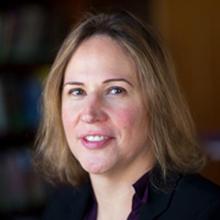
Dr. Gerecht is a Professor in the Department of Biomedical Engineering at Duke University since 2022. Before moving to Duke, she was a Professor and the Director of the Institute for Nanobiotechnology at the Whiting Scholl of Engineering, Johns Hopkins University. Dr. Gerecht is a global expert in vascular and stem cell biology and engineering, including pioneering engineering principles to understand and harness cell fate decisions for therapeutic developments. She and her lab team study how the microenvironment modulates stem cell fate, differentiation, and tissue assembly. These include understanding how various properties of the extracellular matrix modulate cellular responses and how oxygen gradients regulate tissue performance. They develop biomaterials to guide morphogenesis through sequential activation of signaling pathways to form functional tissues and use a range of disease and injury models to delineate thesemechanisms in vivo.
Dr. Gerecht is the recipient of the Allan C. Davis Medal from the Maryland Academy of Sciences (2008), the North America Vascular Biology Organization Junior Investigator Award (2009), the Basil O’Connor Starter Scholar Research Award from the March of Dimes Foundation (2009-2011), the National Scientist Development Award (2008-2012) and Established Investigator Award (2014-2019) both from the American Heart Association, the National Science Foundation CAREER award (2011-2016), the W.W. Smith Charitable Trust Heart award (2014-2017), and the JHU Inaugural President’s Frontier Award (2015). Dr. Gerecht is an elected Fellow of the American Institute for Medical and Biological Engineering (2016), an elected Member of the National Academy of Medicine (2019), and an elected fellow of the American Association for the Advancement of Sciences (2020) and the National Academy of Inventors (2020). She is the author of more than 150 papers, book chapters, and patents in her field.
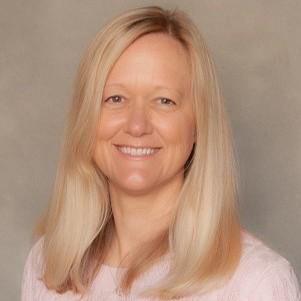
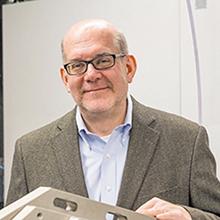
Mark D. Poliks is a SUNY Distinguished Professor in the Systems Science and Industrial Engineering department and the Materials Science and Engineering program at the Thomas J. Watson College of Engineering and Applied Science, Binghamton University, State University of New York. He is also an Empire Innovation Professor of Engineering. He is the founding director of the Center for Advanced Microelectronics Manufacturing (CAMM), a New York State Center of Advanced Technology. CAMM is home to the New York Node of federally (DoD) supported NextFlex Manufacturing USA. Poliks has made sustained contributions to the fields of electronics packaging, flexible and hybrid electronics that are relevant to a variety of medical and industrial applications. He has had significant experience working in the electronics industry serving as a senior technical manager at the IBM Corporation and as Director of R&D at Endicott Interconnect Technologies, Inc.

Professor Michael G. Spencer earned his B.S. degree in 1974 and his M.S. degree in 1975. Spencer worked at Bell Laboratories from 1974 to 1977 before returning to Cornell to receive his Ph.D. degree in electrical engineering in 1981. He joined the faculty of Howard University as an assistant professor in 1984. Spencer also founded the Materials Science Center for Excellence in 1984 and served as its director for the entirety of his career at Howard. He spent the next eighteen years working and researching at Howard, becoming a full professor in 1990 and the David and Lucile Packard Chaired Professor of Materials Science in 1999. In 1999, he returned to his alma mater, Cornell University as professor of electrical engineering. He served as associate dean of research and graduate studies for the College of Engineering from 2002 to 2008. At Cornell Spencer directed the Wide Bandgap Laboratory where he continued his research on semiconductor materials like Silicon Carbide (SiC) and Gallium Nitride (GaN), as well as developing research on two dimensional semiconductors like graphene. He founded Widetronix, a company that builds low power long life betavoltaic batteries. Spencer has written over 250 publications concerning semiconductors and has also co-authored over 11 United States patents. Spencer was a founder of the International Conference on Silicon Carbide and Related Materials (ISCREM).
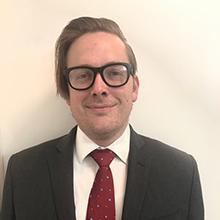
In December 2023 Rudy became Director of Process Technology at Applied Materials. Previously he was Principal Research Staff Member and Manager of the Novel Devices and Electronic Materials at IBM Almaden Research Center. Rudy is focused on developing new methods for building the computers of tomorrow with a focus on the synthesis of inhibiting materials for area selective depositions. He graduated from Case Western Reserve University in 2014 with a Ph.D. in Macromolecular Science & Engineering supported by a NASA GSRP Fellowship. After completion of his graduate work he joined IBM, advancing to his current position after demonstrated leadership in ASD and chemical recycling of polymers. Despite the majority of his work being IBM confidential his external eminence is significant with an early career impact factor of 16 and 28 peer papers with over 2000 citations, he is also prolific inventor (honored as an IBM Master Inventor) with 135 patents/patent applications. More broadly, he serves the field of nanofabrication as a member of the external advisory board for the University of Chicago Materials Department, thesis committee for Dara-Bobb Semple (Stanford University) as well as community outreach. Recently, featured in the ACS publication C&EN's the Talented Twelve as a “Nanopatterning virtuoso”.
